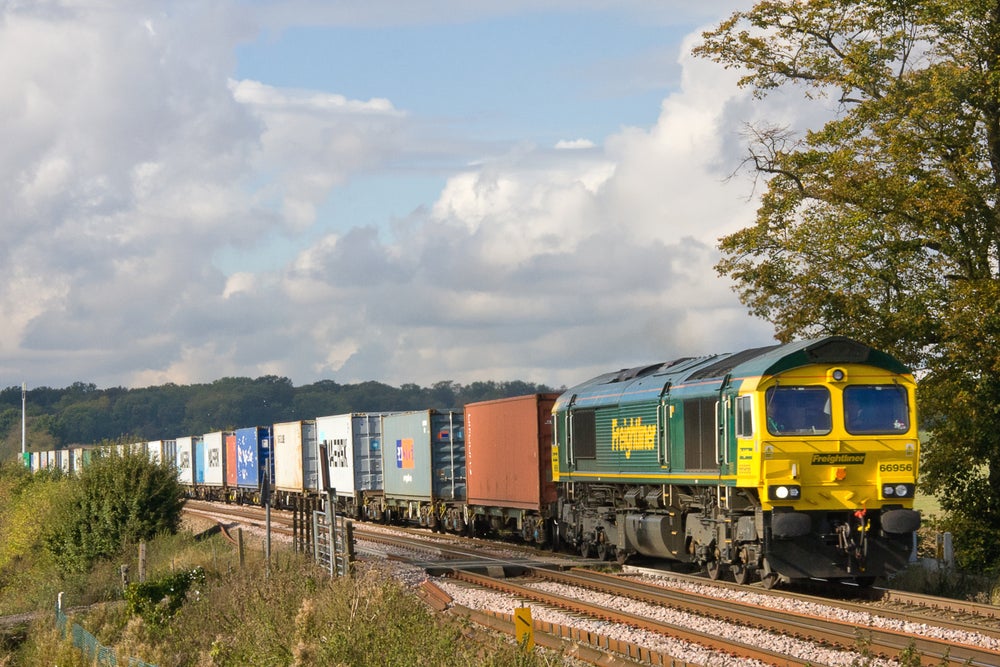Potentially huge news for UK rail transport came at the end of April 2024, during a speech made by Labour’s Shadow Transport Secretary Louise Haigh at the London HQ of online ticketing company Trainline.
Haigh said Labour, if elected in July, will not only realise the creation of Great British Railways (GBR) out of Network Rail, as envisaged by former Prime Minister Boris Johnson in May 2021, it will also bring the country’s ten remaining privately-operated train operating companies (TOCs) back into public ownership within its first term in Government.
Describing Britain’s railways as “a symbol of national decline”, Haigh said she wants the GB’s rail network to be led by “rail experts” rather than Whitehall. In addition, a new passenger watchdog, the Passenger Standards Authority (PSA), will monitor the operation of passenger trains and stations.
Haigh admitted that renationalisation will “not be easy and … will take hard graft”. However, Labour believes that such an approach will prove better value for money for the taxpayer than buying operators out of their contracts early. The party is also keen to tackle productivity, which it sees rail reform as key to improving and an area it feels the Conservatives have neglected during its term in office.
The plan will come close to achieving the full renationalisation of the country’s railways that Labour, has often championed.
While all the main passenger train contracts will be brought back into public ownership as their current contracts expire, Labour nonetheless continues to see the benefit in awarding contracts to privately-owned open access operators (OAOs) on some key routes. This would help increase competition while potentially reducing ticket prices and improving the overall passenger experience. This is no doubt to keep the government-owned train operations honest; a sensible plan in our opinion.
How well do you really know your competitors?
Access the most comprehensive Company Profiles on the market, powered by GlobalData. Save hours of research. Gain competitive edge.

Thank you!
Your download email will arrive shortly
Not ready to buy yet? Download a free sample
We are confident about the unique quality of our Company Profiles. However, we want you to make the most beneficial decision for your business, so we offer a free sample that you can download by submitting the below form
By GlobalDataRail freight expansion planned
The party has also pledged to expand the rail freight sector, for which the current government has set a growth target of 75% by 2050. While Labour has yet to set its own targets, it is committed to measures including statutory duties for freight and long-term growth targets. Naturally many questions remain, not least of which is where the money to do all of this will come from.
The most recent figures from the Office of Rail and Road (ORR) show operational expenditure by franchised train operators of £11.7bn in FY2022-23, some 46% of recorded spending by the UK rail sector, and not far behind Network Rail’s £12.4bn expenditure in the same period, out of a total of £25.4bn. At the same time, operational industry income in FY2022-23 was £22.7bn, with £11.9bn accruing to government coffers, primarily from Network Rail’s access charges to private TOCs and freight operators. This amounts to an overall deficit of around £0.5bn.
More concerning for Labour is the discrepancy between franchised train operator expenditure and passenger operator income of £9.2bn. This £2.5bn deficit will be felt directly on the government’s bottom line, unless additional sources of income can be found and/or operational costs reduced.
What will a renationalised rail network look like?
Assuming that this not insubstantial hurdle is overcome, many more prosaic questions regarding Labour’s plans remain, many of which are, however, extremely pertinent to suppliers.
As yet, we don’t know what a largely renationalised rail network under Labour might look like. Will, for instance, the renationalised TOCs be merged into a single entity or will they continue to operate somewhat independently, as those TOCs already under the control of the Government’s operator of last resort, DfT OLR Holdings Ltd. currently do? Might train operations ultimately be reintegrated with GBR’s infrastructure operations?
This is currently unclear. However, our inkling is that the remaining private TOCs will join those already renationalised under the protective umbrella of DOHL but without further reintegration, at least during a new Labour Government’s first term. Vertical reintegration of the TOCs with rail infrastructure in the shape of Network Rail / GBR also seems unlikely. The needs of train operators, rail infrastructure operators and network planners do not necessarily align well and may therefore be better off remaining separate, at least for the time being.
Complexities ahead
Moreover, the transfer of many rail responsibilities to the devolved nations of the UK and England’s mayoral combined authorities, especially in recent years, presents a major obstacle to any plan to recreate British Railways. Given Labour’s commitment to devolution, we doubt this will happen but either way there are likely to be complexities ahead for the fully-joined-up approach to rail, not to mention intermodal transport, the country so badly needs.
Nonetheless, given that rail reform has proved a somewhat turgid process to date, Labour’s professed commitment both to carrying it out in its first term, and seemingly going further than the Conservative plans, looks to us to be a positive move, providing it is executed properly. If nothing else, it should create many new public sector opportunities for suppliers to the rail industry.









Related Company Profiles
Trainline plc
Network Rail Ltd